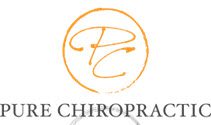
One of the best ways to rejuvenate your health is by eating more nutritiously. In fact, even a few simple changes in your diet and lifestyle can have a positive impact on your health and can also prevent a variety of health problems in the future.
The traditional coffee and doughnuts for breakfast; a hamburger for lunch or no lunch; candy, cookies, and a soft drink for a snack; followed by a huge dinner with more protein than a person needs-are unhealthy dietary choices. As a result, younger people are starting to suffer from heart disease not only because of poor diet, but also because of an epidemic of inactivity.
To reverse the alarming trend, many doctors of chiropractic urge patients to stop smoking, eat a balanced diet, drink plenty of water, exercise regularly, and augment their balanced diet with appropriate nutritional supplements.
What Can You Do?
Start with Lifestyle Changes:
- Exercise at least 20 to 30 minutes three or four days a week.
- Eat out more sparingly. Food preparation methods in restaurants often involve high amounts-and the wrong types-of fat and sugar.
- Brown-bag your lunch to control your fat and sugar content while adding nutritious fruits, vegetables, and grains.
- Limit your intake of alcohol and quit smoking. Drinking alcohol excessively and/or smoking hinder your body’s ability to absorb nutrients from your food.
Dietary Changes
- Eat more raw foods. Cooking and canning destroys much of the nutrition in foods. With the exception of canned tomatoes, which can help prevent prostate cancer,1 fresh or frozen fruits and vegetables always have more natural vitamins and minerals.
- Select organically grown foods when possible, because they have lower amounts of toxic elements, such as pesticides and heavy metals.
- Consume 25 to 30 grams of fiber a day. Whole-grain breads and cereals, beans, nuts, and some fruits and vegetables are good sources of fiber. High-fiber diets can help prevent digestive disorders, heart disease, and colon cancer.
- Drink eight to ten 8-ounce glasses of water a day. Coffee, tea, soft drinks, and alcohol are dehydrators. Don’t substitute them for water.
Vegetarian Diets
Research shows that a good vegetarian diet as part of a comprehensive health program can help prevent heart disease, cancer, and other diseases.2,3 However, fried foods, hydrogenated fats, and commercial meat substitutes may contain more sugar and fat than a meat-eater would consume.
If you are considering a vegetarian diet, keep the following tips in mind:
- Don’t rely on fruits and vegetables at the expense of grains and legumes. Eat a variety of fruits and vegetables to consume a wide range of nutrients.
- Tiredness, malaise, and anemia can be signs of deficiencies. Have your B12 and iron levels checked at least once a year.
- Consume fortified foods or take supplements to obtain the nutrients you no longer get from animal-based products, such as vitamin B12.
- Before eliminating animal products from the diet, learn to do it right. Children, pregnant and breast-feeding women, and people recovering from illness should consult their health care practitioners.
Supplements
According to the U.S. Food and Drug Administration, dietary supplements are not substitutes for foods, nor can a person sustain good health by just taking vitamin and mineral supplements.4 When taken properly, however, supplements can play an important role in achieving maximum health. If you are considering nutritional supplements, keep the following tips in mind:
- Remember to consume dark green vegetables, oils, nuts, and seeds, which are sources of magnesium, fatty acids, and many other vitamins and minerals.
Don’t "self-prescribe." Consult a health care practitioner, such as a doctor of chiropractic, to determine what supplements are best for you. If you have symptoms such as headaches, chronic fatigue, or cardiac problems, seek professional advice from a health care provider who specializes in nutrition.
References
- Pohar KS, Gong MC, Bahnson R, Miller EC, Clinton SK. Tomatoes, lycopene and prostate cancer: a clinician’s guide for counseling those at risk for prostate cancer. World J Urol. 2003 May;21(1):9-14. Epub 2003 Mar 22.
- Beilin LJ. Vegetarian and other complex diets, fats, fiber, and hypertension. Am J Clin Nutr. 1994;59(suppl):1130-1135.
- Dwyer JT. Health aspects of vegetarian diets. Am J Clin Nutr. 1988;48(suppl):712-738.
For Your Health,
Dr. Ted Smith and

